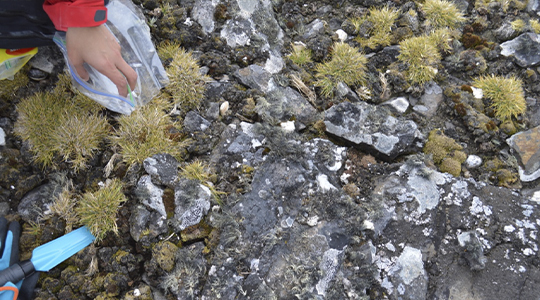The study argues that prokaryotic and eukaryotic microbial communities respond to temperature change differentially.
Thanks to a recent study, researchers from the Network for Extreme Environments Research (NEXER) published their research based on the fact that active rhizospheric microbial communities (based on meta-transcriptomics) are strongly influenced by vegetation cover, which represents a confirmation of previous findings.
However, what was novel and interesting was the finding of sensitivity to temperature change in eukaryotic community diversity, while prokaryote diversity showed greater resilience to climate change on the Antarctic Peninsula.
It should be noted that this publication originated from the thesis of Genesis Parada and the multidisciplinary collaboration of researchers from various institutions such as the Universidad Mayor, the Pontificia Universidad Católica de Chile, the Universidad de Concepción, the Institute of Ecology and Biodiversity (IEB) and the Universidad de La Frontera.

